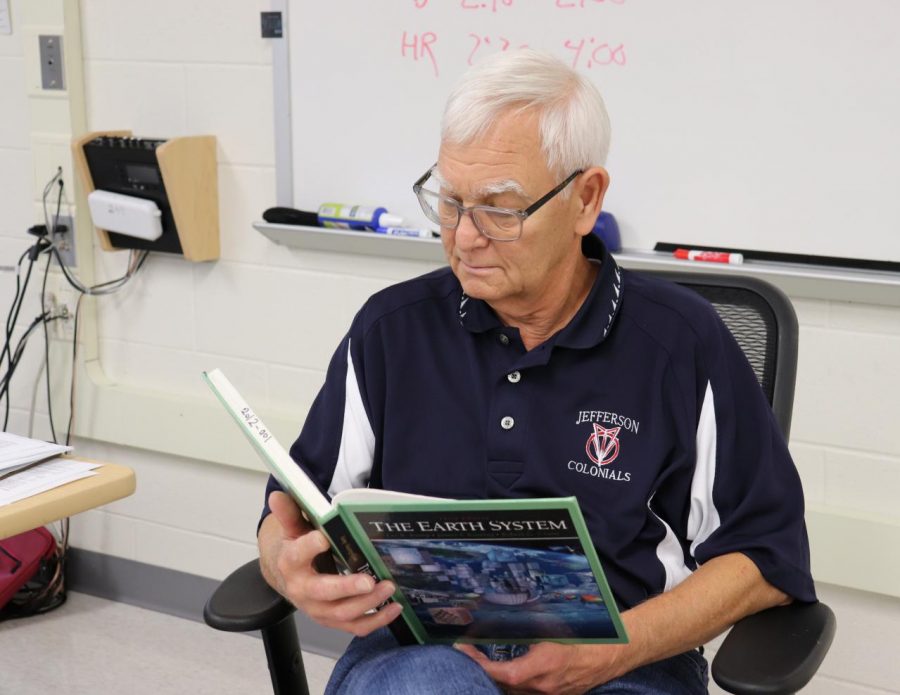Teaching beyond retirement
Former Jefferson physics teacher James Rose fills geosystems vacancy.
Photo courtesy of Sabria Kazmi
For his current role as a long-term geosystems substitute, retired Jefferson physics teacher James Rose refers to resources such as the textbook to better prepare for each day of class.
September 7, 2018
Retirement has nothing on long-term substitute James Rose. A former physics teacher at Thomas Jefferson HS for 28 years, Rose officially retired in 2013. Regardless of his occupational status, however, he has taken temporary substitute positions to fulfill an enduring passion: teaching.
“I’ve been retired for five or six years, and there’s some things I was learning how to do and to enjoy,” Rose said. “[But] it does take time; retirement is not necessarily a panacea, but you learn and you adapt. Every time I just about get adapted, I get called back to work.”
His most recent call to work involved filling a vacancy in the geosystems department. From his previous work in physics, Rose has looked toward his three-decades worth of knowledge for topics, such as modeling, systems, and astronomy, to provide a foundation for his new position. Despite many common themes, however, the discipline of geosystems presents challenges entirely distinct from his prior subjects.
“Geosystems is about not necessarily getting the right answer; it’s about thinking about the Earth as a system. In a sense, that’s easier,” Rose said. “But in another sense, you really have to think about the approach you’re taking, because it’s not quite as linear [as physics].”
In order to bridge the knowledge gap between his own expertise and the geosystems curriculum, Rose consults with returning geosystems instructors, Dr. John Woodwell and Dr. Shawn Stickler, as well as a new teacher, Rachel Mills.
“There is more [teacher] collaboration [than from when] I taught here in 1985,” Rose said. “Learning to put together the technology and English… [in joint humanities] has really worked out, and I think has made teachers overall more willing to collaborate. Now, you have [teacher] collaboration [since] ninth grade. That’s been a change.”
In adjusting to the core curriculum of senior geosystems classes, Rose plans to maintain a steady pace of materials in his classes, promoting a flexible environment for students to thrive.
“I’m basically trying to keep one day ahead of my students, sometimes with a bit of difficulty,” Rose said. “I feel like I’m competent in the sense that the skills are there, but the knowledge base can be difficult.”
Although the duration of his substitute position is currently unknown, Rose hopes his students’ learning will remain uninterrupted.
“My goal is to try and establish parameters so that there will be a smooth transition when [the students] get a full-time teacher, and they haven’t lost instruction,” Rose said.
In doing so, he will continue to educate and inspire well beyond his retirement.






